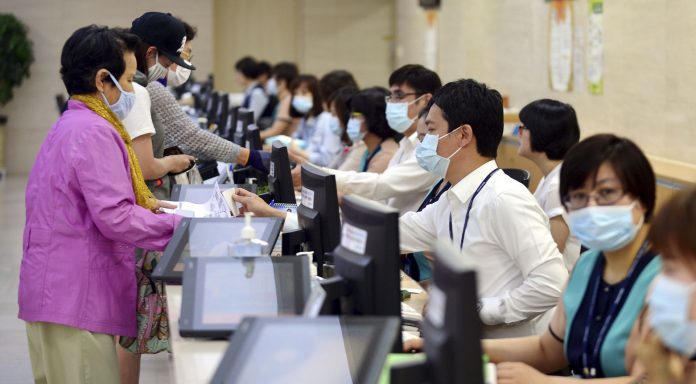Throughout the first quarter of 2020, reports have been coming in regarding the desperate struggle of South Korean jobseekers who are more than qualified but are unable to land positions due to cost cutting measures that have been brought upon companies as a tactic against the effects of COVID-19.
The situation seems even less promising in the second quarter of 2020, with many economists predicting that the pandemic will continue to deal a heavy blow against employment.
South Korea’s economy has already shrank 1.4 percent on-quarter in the first quarter of 2020, making this the worst contraction since the final months of 2008. In April, South Korea suffered its biggest monthly job losses in 21 years as the government scrambled to put in place containment measures to keep the spread of the coronavirus in check.
Back in April 2020, the number of employed workers in South Korea stood at around 26.56 million. This is around 476,000 people less than a year ago, marking this drop as the largest on-year decline since February 1999.
Although South Korea’s job market has yet to be as severe as in the United States, where the jobless rate stood at around 15 percent at one point, the fact remains that weaker social safety nets make it a much tougher ordeal for the unemployed to brace for the pandemic in this era of globalisation; and experts believe that the worst has yet to come.
In comparison, the number of employed workers saw a fall of 1.02 million in April, as stated in a report by the Korea Labour and Society Institute (KLSI). In comparison, the country saw a huge drop of 920,000 workers between December 1998 and February 1999 during the Asian financial crisis which disrupted the job market.
“The coronavirus pandemic is expected to hit the job market more than the 1998 crisis. Unless there are unprecedented measures, the pandemic is expected to further deteriorate inequalities in the Korean society,” said the KLSI.
Much of the blame for the contracting job market can be put on the drop in private consumption in the first quarter of 2020, which in turn has led to businesses cutting their costs. The government currently intends to soften the blow from the pandemic on the job market by aiming to create approximately 1.56 million jobs in the public sector.
Currently, up to 1 million jobs in the private sector remain unavailable due to social distancing measures that are being undertaken by South Korea. However, Finance Minister Hong Nam-ki has made it known that these jobs will slowly be available once more as the government eases some of the rules over time. The government is also encouraging public businesses to create 550,000 jobs to further supplement the struggling job market.
“Although the government has responded to a weak job market by running a range of job support programs from employment retention and job creation support to unemployment benefits and emergency reliefs, the April data told us that we need to provide jobs to absorb shocks in the job market,” Hong said.
Among other things, it was also noted that temporary workers and freelancers were also hit particularly hard by the pandemic.
“We will work to further expand unemployment insurance to platform workers, free lancers and other contract workers. On top of that, we will improve the country’s employment policies taking into consideration growing remote workers and tech jobs,” Hong said.






















